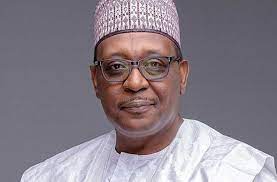Some Abuja residents have called on the Federal Government to tackle out-of-pocket health expenditure and enhance the system, emphasising the need for prompt and quality medical attention.
They made the call in separate interviews with the News Agency of Nigeria (NAN) on Monday.
The residents also called for equipped health facilities, trained personnel and a robust health insurance system to ensure that every citizen has access to adequate care.
Also Read:
- Six Months Power Outage: CDAs sends SoS to Minister
- Fejiro empowers young Nigerians with Blockchain, Web3 Skills
- Erotic Monday Night: Connected by sex, by Tiwa Says
- Four gospel ministers die in fatal Ogun accident
- Five passengers abducted by pirates on Rivers waterways
One of the respondents, Stella Luka, a 42-year-old Teacher in Abuja, called for functional Primary Healthcare Centres in rural areas, saying that the lack of services and drugs at such centres cause disproportionate burden on urban health facilities, resulting in overcrowding and longer wait times.
She urged the government to expand healthcare infrastructure and bring medical services closer to underserved communities.
Adama Sule, a civil servant who said she had been battling asthma for over 13 years, wanted the government to address the high cost of medical services and medications, which she said is the reason many individuals refuse to go to hospital.
She said: “the cost of inhalers used in the treatment of asthma is now beyond the reach of many people. Many are struggling to afford even basic healthcare, let alone more specialised treatments.”
On his part, Possible Chinedu, a cleric also residing in Abuja, emphasised the importance of trained healthcare personnel.
He said: “The shortage of skilled doctors, nurses, and other healthcare professionals has been a persistent issue in the country.”
Chinedu suggested that investing in the training and retention of healthcare workers is crucial in providing quality care to the population.
Issac Nosa, an Entrepreneur also living in Abuja, said disease prevention should be the government’s top priority.
He added that “with a high burden of infectious diseases such as malaria, tuberculosis and HIV/AIDS, there is a need for effective control measures in the country in 2024.”
Nosa called for increased investment in preventive healthcare, including vaccination campaigns, public health education, and improved sanitation practices.
Maternal and child health is an area of concern for Mrs Tabitha Marcus, a retired Nurse, who said that the country has one of the highest maternal and child mortality rates in the world.
Marcus stressed the need for improved access to prenatal and postnatal care, skilled birth attendants and emergency obstetric services.
She said that investing in maternal and child health would not only save lives but also contribute to the overall development of the country.
In addition to these key considerations, Mercy Adejo, the Founder of Women Strengthening Women in Nigeria, highlighted the importance of community engagement, health awareness campaigns and mental health support.
Adejo said involving communities in decision-making processes, raising awareness about health issues, and addressing mental health concerns would contribute to a comprehensive and responsive healthcare system in the country.
To address these challenges, Dr Solomon Chollom, a Virologist and a Public Health expert, urged the government to prioritise healthcare in its policy agenda.
Chollom emphasised the need for increased funding, strategic planning, and deployment of advanced medical technologies in the new year.
“By addressing these issues, the country can work toward achieving a healthcare system that meets the needs of citizens and promotes the overall well-being of the nation,” he said.


